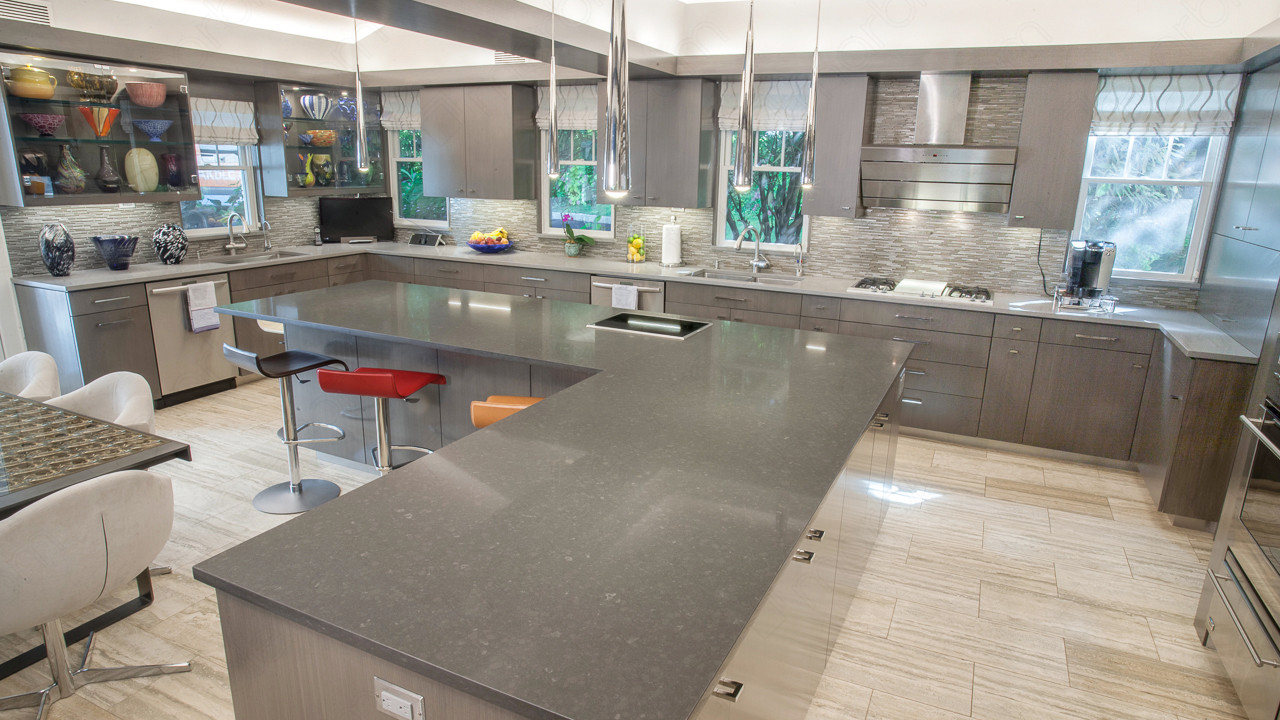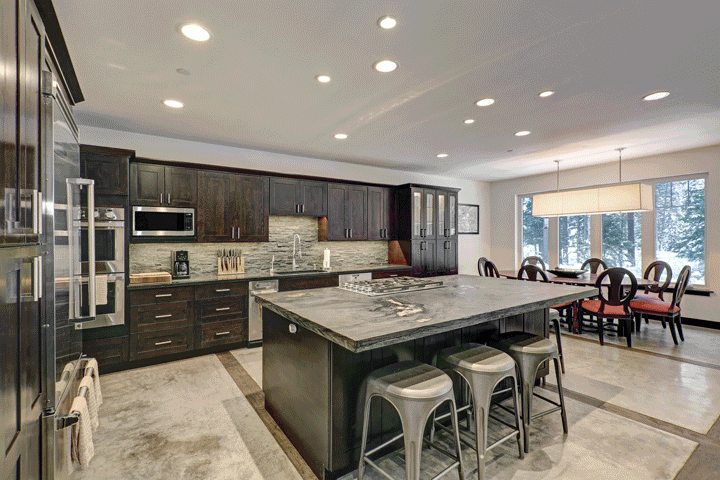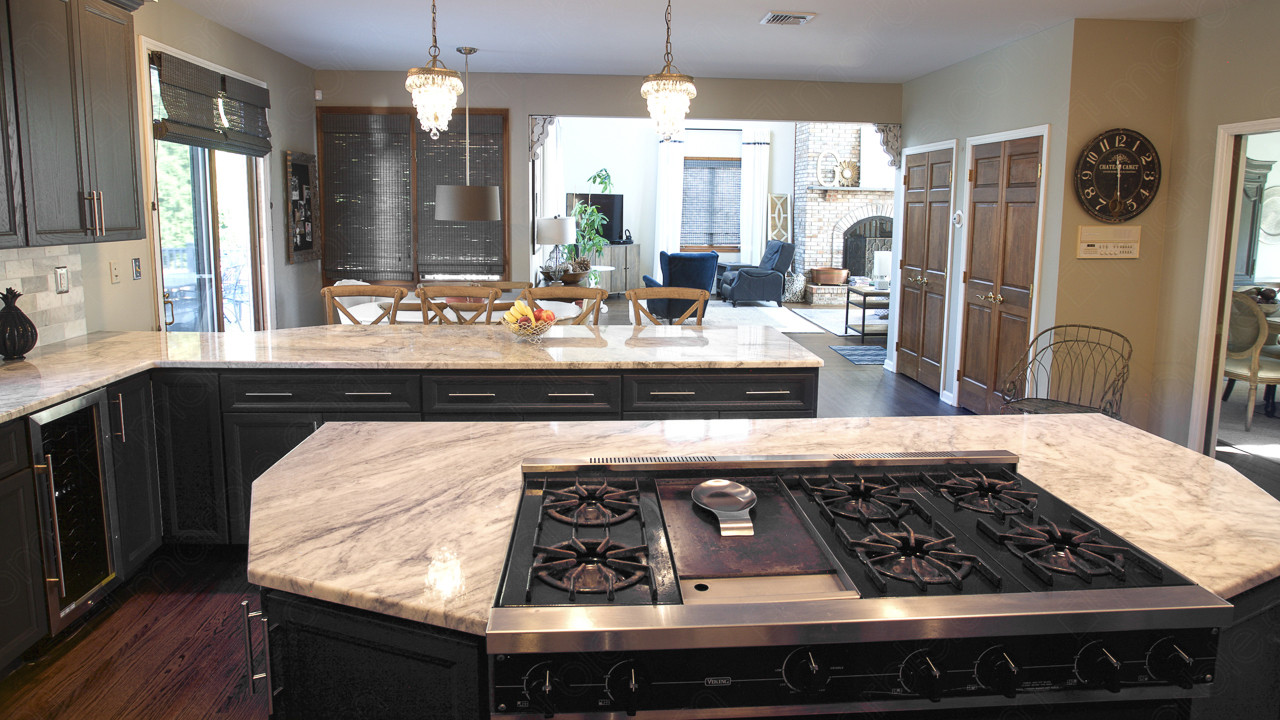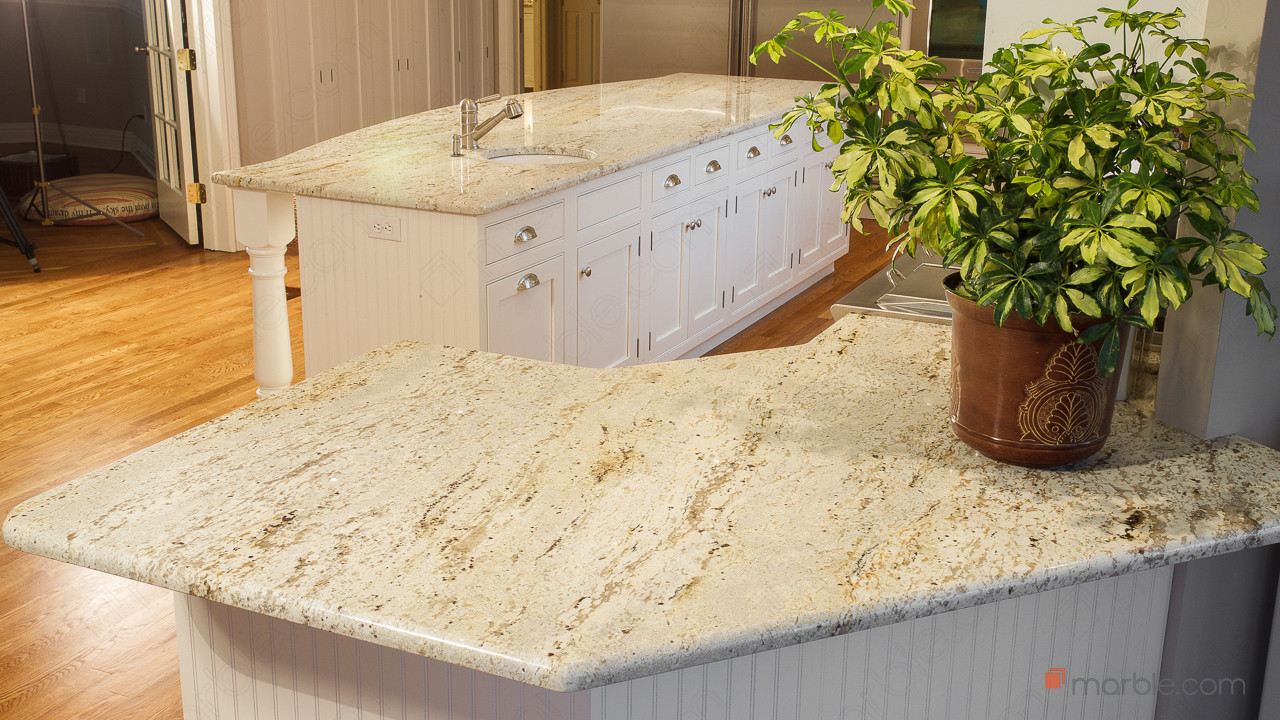
Table of Contents
While natural stone countertop options, such as granite countertops and marble countertops, remain popular, quartz countertops have become quite the competition on the market. Many homeowners today choose quartz to complete their remodeling projects.
When evaluating which countertop material will be the best fit for your home, you may want to keep porosity in mind. Doing so will allow you to know which countertops will be better at handling spills and stains. This guide will cover whether quartz is a porous material and other helpful information about the surfaces.
[get_quote]
What is Porosity?
When looking for natural stone countertops, you may hear the term ‘Porosity’. This term refers to the amount of void spaces in the stone that allow liquid and air to pass through. In terms of natural stone countertop options, materials like granite are on the less porous side, whereas a material like limestone is very porous.
Are Quartz Countertops Porous?
Quartz is a non-porous material. These surfaces are engineered stone that is created by combining roughly 90 percent ground natural quartz with about 10 percent polyresin. These specific percentages can differ slightly based on different brands (Caesarstone, Silestone, Cambria, etc.). Because quartz surfaces are manufactured, they can be made to have no pores. This is one of the major advantages that quartz countertops have over many other options.
Lack of Porosity: What is the Impact?
Because quartz is a non-porous surface, it is one of the most stain resistant and low maintenance materials you can find. While you should clean up any spills that occur immediately as a good habit, you will not have to worry about staining as much as you will with many other surfaces. In addition, you will not need to apply a sealant as you would with most natural stone countertops.
What Are the Pros of Quartz?
Quartz is an all-around great building material for the home. The surfaces are beautiful, durable and low maintenance – all qualities that homeowners love. If you are looking for new kitchen countertops, or new countertops for areas like the bathroom, these engineered stone countertops will be a great fit.
In addition to being stain resistant, quartz countertops are also scratch resistant. Other than countertops, quartz also works well for backsplashes and various other home surfaces.
| Beautiful |
| Durable |
| Low maintenance |
| Versatile |
| Non-porous |
What Are the Cons of Quartz?
While quartz is a great choice for countertops and backsplashes, no material is perfect. The main issue you will have to be mindful of is the ability of quartz to be damaged by excessive heat. Although you will find quartz labeled as heat resistant, it cannot withstand as much heat as many other materials. For example, if you place a hot pot or hot pan on its surface, your quartz countertop will sustain a permanent discoloration from a burn mark. In the kitchen, make sure to always use trivets and hot pads when handling such items around your quartz countertop. If you have a quartz countertop in your bathroom, make sure to not place any hot hair styling tools on the surface. Lastly, you cannot install a quartz countertop outside, as it can become damaged from exposure to direct sunlight.
| Cannot handle excessive heat |
Frequently Asked Questions
How Much Do Quartz Countertops Cost?
On average, quartz costs between $50 to $120 per square foot. More common types of quartz will come at a lesser cost, while rare types are in the high-end of the price range.
Can You Install Quartz Countertops on Your Own?
No, you cannot install your own quartz countertops. The material is very heavy and difficult to handle. Hiring professional installers significantly lowers the risk of improper installation and injury.
[get_quote]
How Does Quartz Compare to Solid Surface and Laminate Countertops?
Quartz is superior in quality to both solid surface and laminate countertops. If you are going for an alternative to natural stone, you are best off choosing quartz.
The non-porous qualities of quartz attract many homeowners. While not a difficult process, the convenience of not having to apply a sealer every so often make quartz countertops one of the lowest maintenance surfaces you can have in your home. Through reviewing this guide, you can better understand porosity and its effects on countertop materials, as well as additional information about quartz countertops.
















 The article helped me immensely
The article helped me immensely
 I’m now more informed on the subject
I’m now more informed on the subject
 I have questions about Marble.com
I have questions about Marble.com
 The article was not accurate at all
The article was not accurate at all
 There is a serious lack of information
There is a serious lack of information
 I have questions about Marble.com
I have questions about Marble.com